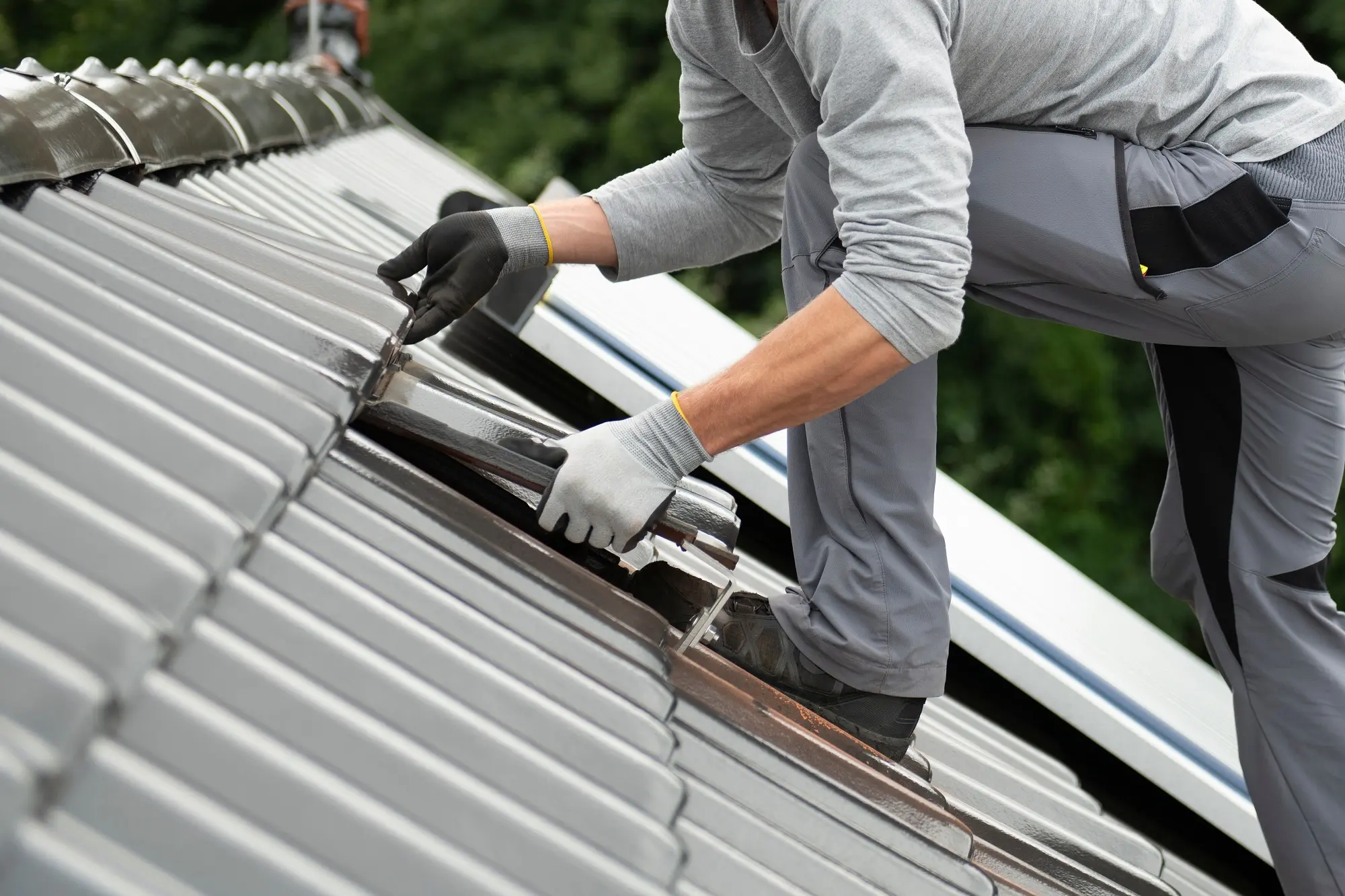As Chicagoland's trusted roofing contractor with over 30 years of experience, Greater Midwest Exteriors has witnessed firsthand how roofing trends evolve to meet homeowners' changing needs. Whether you're planning a roof replacement or considering an upgrade, understanding these emerging trends helps you make informed decisions that protect your investment and enhance your home's performance against Illinois' demanding climate.
Let's explore the top roofing trends that are gaining traction across Illinois and how they can benefit your home.
Smart Roof Technology: The Future Is Here
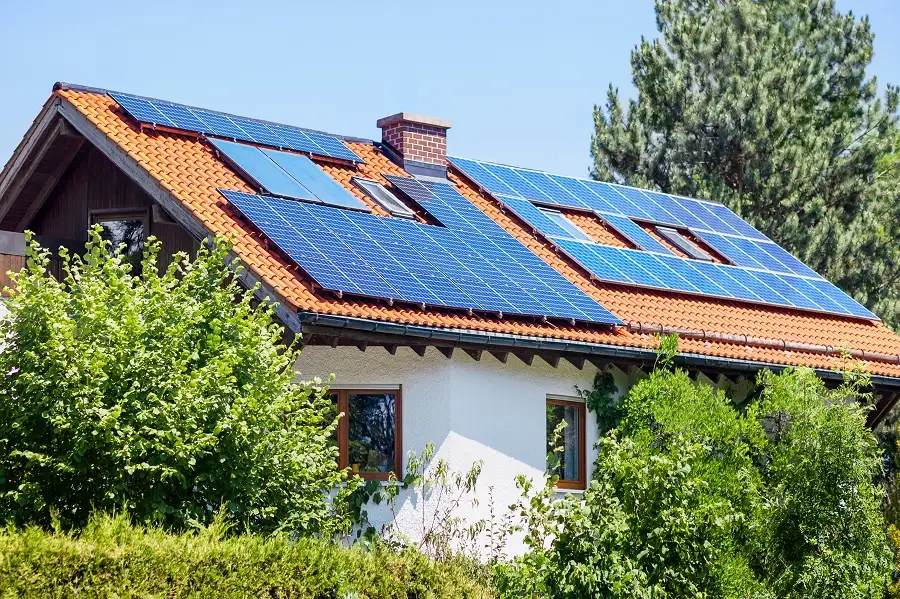
Smart roofs represent the most revolutionary advancement in the roofing sector, transforming traditional roofing materials into intelligent systems that monitor, protect, and optimize your home's performance. This innovative technology is gaining popularity among tech-savvy homeowners who value proactive maintenance and real-time monitoring.
Sensor-Enabled Roofing Systems
Modern smart roofing incorporates sensors that detect leaks, monitor temperature fluctuations, and assess structural integrity. These systems provide early warning alerts that help prevent minor issues from becoming costly repairs. For Illinois homes facing extreme weather events, this technology offers invaluable peace of mind.
Key benefits of smart roofing:
- Early leak detection prevents water damage
- Temperature monitoring optimizes energy efficiency
- Structural assessments identify potential problems
- App-based control makes roof monitoring effortless
- Predictive maintenance reduces long-term repair costs
Integration with Home Automation
Smart roofs seamlessly integrate with existing home automation systems, allowing homeowners to monitor their entire roof through centralized control panels. This integration helps streamline operations and provides comprehensive oversight of your home's protection systems.
Many homeowners are discovering that smart roof technology not only enhances safety but also provides valuable data for insurance claims and maintenance planning, making it an increasingly attractive investment for forward-thinking property owners.
Energy-Efficient Roofing: Cool Roofs Leading the Charge
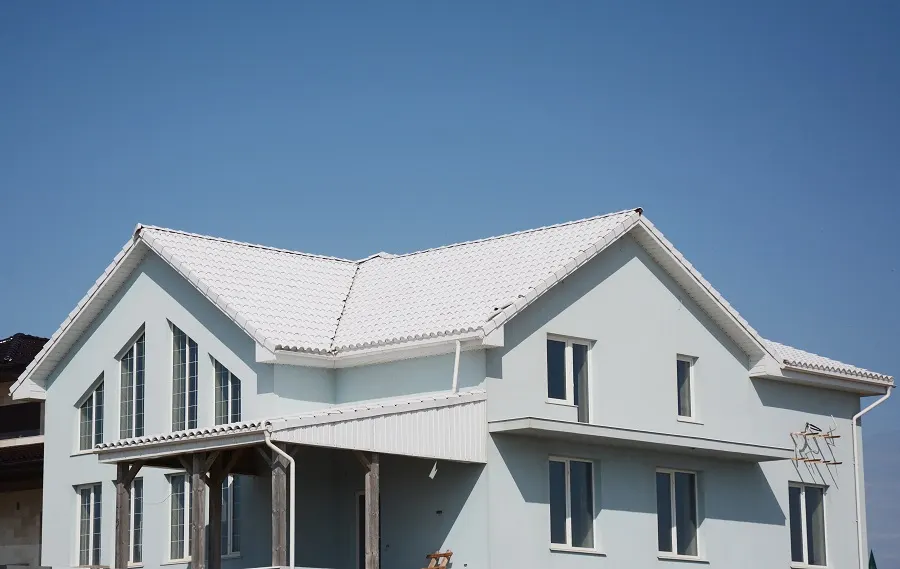
Energy efficiency remains a top priority for Illinois homeowners, driving demand for roofing materials that reduce energy costs while providing superior protection. Cool roofs, which reflect the sun's rays and minimize heat absorption, are transforming how we think about energy-efficient home design.
Reflective Roofing Materials
Cool roofing systems use specially designed materials that reflect solar radiation, keeping buildings cooler and reducing the burden on HVAC systems. This technology is particularly beneficial in Illinois, where summer temperatures can drive energy bills significantly higher.
Popular cool roofing options:
- White and light-colored metal roofs
- Reflective asphalt shingles
- Cool clay and concrete tiles
- Modified bitumen with reflective granules
- Single-ply membranes for flat roofs
Energy Savings and Incentives
Homeowners installing energy-efficient roofing can benefit from various incentives, including utility rebates and tax credits. These financial benefits, combined with lower energy bills, make cool roofing an attractive long-term investment for cost-conscious homeowners.
Solar Roofing Revolution: Beyond Traditional Solar Panels
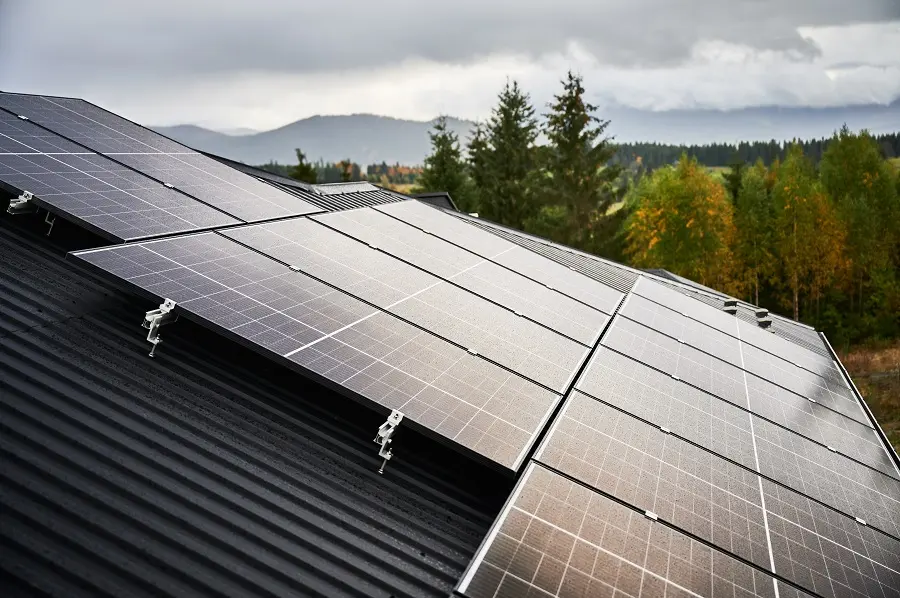
Solar roofing continues evolving beyond traditional solar panels, with solar shingles and integrated solar tiles gaining traction among homeowners seeking clean energy solutions that don't compromise aesthetic appeal. This trend represents a significant shift in how we generate clean energy from our rooftops.
Solar Shingles vs. Traditional Solar Panels
Solar shingles blend seamlessly with traditional roofing materials, offering a more aesthetically pleasing alternative to bulky solar panels. These innovative materials maintain curb appeal while providing renewable energy generation capabilities.
Advantages of solar shingles:
- Streamlined appearance that matches existing roofing
- Integrated design eliminates visible mounting systems
- Increased property value through modern technology
- Reduced installation complexity compared to retrofit panels
- Enhanced wind resistance due to a lower profile
Financial Benefits and ROI
Solar roofing systems provide long-term financial benefits through reduced energy costs and available tax incentives. The federal solar tax credit, combined with Illinois' net metering programs, makes solar roofing an increasingly attractive investment for homeowners looking to boost their revenue savings over time.
Many homeowners discover that solar roofing not only reduces their monthly energy bills but also increases their home value, creating a win-win scenario for property investment and environmental responsibility.
Metal Roofing Dominance: Standing Seam and Beyond
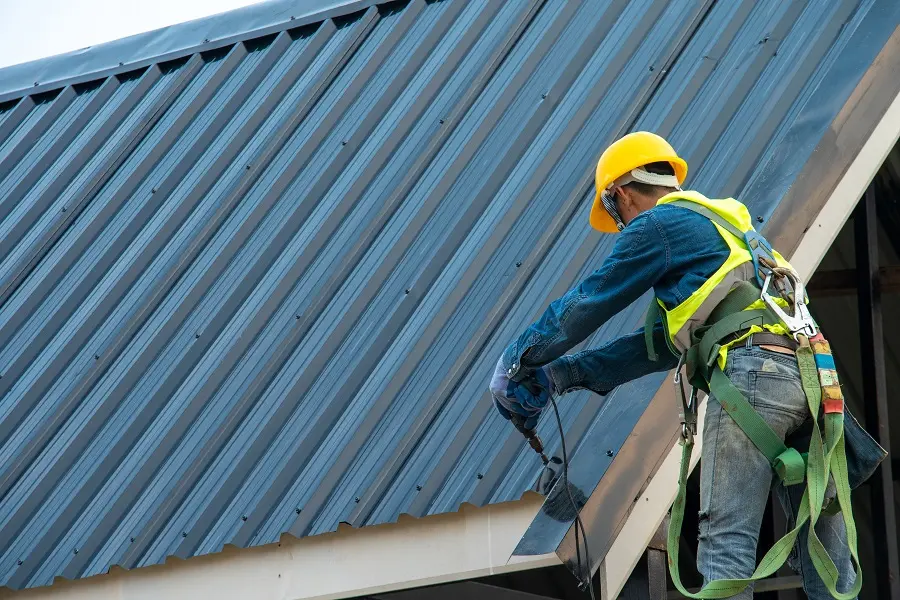
Metal roofs continue gaining popularity in Illinois, with standing seam metal roofs leading the charge due to their exceptional durability, energy efficiency, and aesthetic appeal. This roofing trend shows no signs of slowing down as more homeowners recognize the long-term value of metal roofing systems.
Standing Seam Metal Roofs
Standing seam roofs offer superior protection against Illinois' extreme weather events, including high winds, heavy snow loads, and hail storms. The concealed fastener system eliminates potential leak points while providing a sleek, modern appearance that enhances curb appeal.
Benefits of standing seam metal roofing:
- 50+ year lifespan with minimal maintenance
- Superior wind resistance up to 140 mph
- Energy efficiency through reflective coatings
- Fire resistance and insurance benefits
- Recyclable materials that support sustainability
Metal Shingles and Specialty Profiles
Beyond standing seam systems, metal shingles and specialty profiles are gaining traction among homeowners seeking metal's benefits with traditional aesthetic appeal. These systems offer the durability of metal roofing while maintaining the appearance of asphalt shingles or other traditional roofing materials.
For homeowners considering metal options, understanding the pros and cons of metal roofing helps make informed decisions about this significant investment.
Sustainable and Synthetic Materials
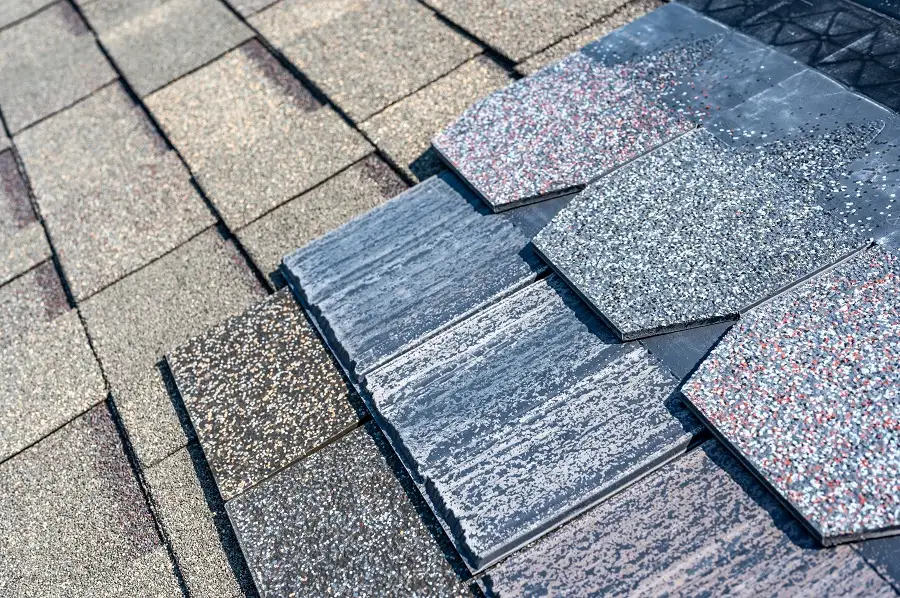
Environmental consciousness drives the demand for sustainable roofing materials and synthetic alternatives that offer superior performance while reducing the environmental impact. Synthetic roofing materials provide excellent durability and weather resistance while supporting eco-friendly building practices.
Recycled and Eco-Friendly Options
Many roofing manufacturers now offer products made from recycled materials, including recycled metal, plastic, and rubber. These materials provide excellent performance while reducing waste and supporting circular economy principles.
Popular sustainable roofing materials:
- Recycled metal roofing systems
- Synthetic slate made from recycled plastics
- Rubber roofing from recycled tires
- Bio-based roofing materials
- Reclaimed wood shingles and shakes
Synthetic Shingles and Composite Materials
Synthetic shingles made from advanced polymers offer the appearance of natural materials with superior durability and weather resistance. These innovative materials resist impact, UV damage, and extreme weather while requiring minimal maintenance.
Composite materials combine multiple components to create roofing products that outperform traditional materials in specific applications, particularly in regions prone to severe weather like Illinois. For homeowners exploring their options, understanding what is the most cost-effective and durable roof material helps guide decision-making.
Premium Material Durability and Value
Understanding how long different roofs last helps homeowners make informed investment decisions. For those considering premium options, natural slate roofing offers unmatched longevity, while cedar shake roofing is naturally beautiful and offers excellent insulation properties.
Many homeowners also explore Spanish tile options for their distinctive Mediterranean appeal, while composite slate offers the beauty of natural stone with enhanced durability.
Color and Aesthetic Trends
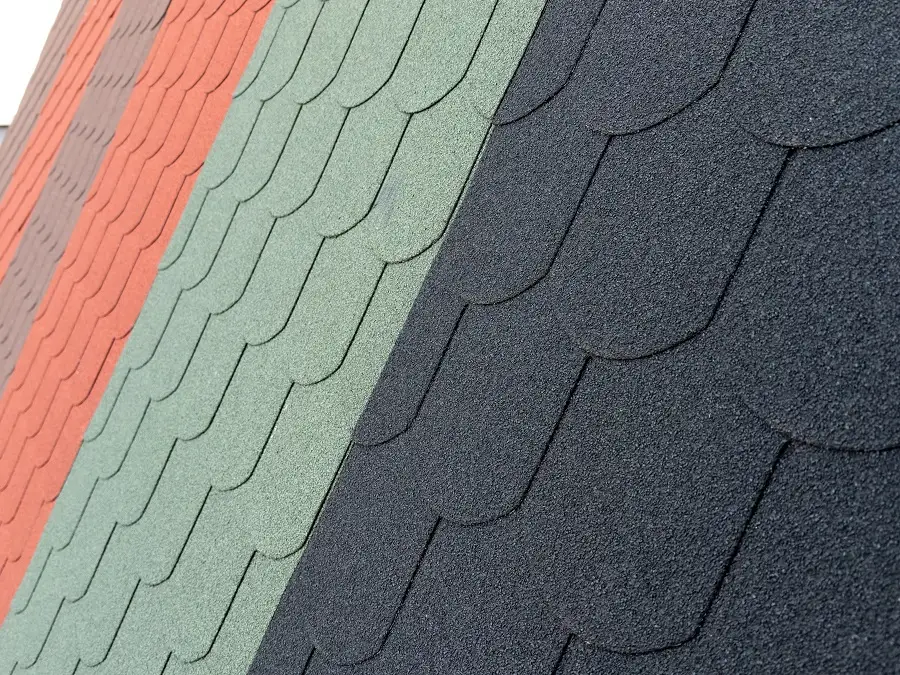
Roofing aesthetics play an increasingly important role in home design, with homeowners gravitating toward colors and styles that enhance their property's overall appeal while reflecting personal taste and architectural harmony.
Popular Color Trends for 2025
Modern color preferences:
- Cooler gray tones for contemporary homes
- Deep charcoal and black for dramatic contrast
- Earth tones, including bronze and copper
- Classic white and light colors for energy efficiency
- Bold colors for accent features and architectural details
Architectural Integration
Today's homeowners prioritize roofing that complements their home's architectural style while making a statement about personal taste and property value. This trend toward architectural integration drives demand for diverse color options and customizable materials.
The growing emphasis on curb appeal means roofing contractors must offer extensive color selections and help homeowners choose options that enhance their property's market value and aesthetic appeal.
Impact-Resistant and Weather-Resilient Solutions
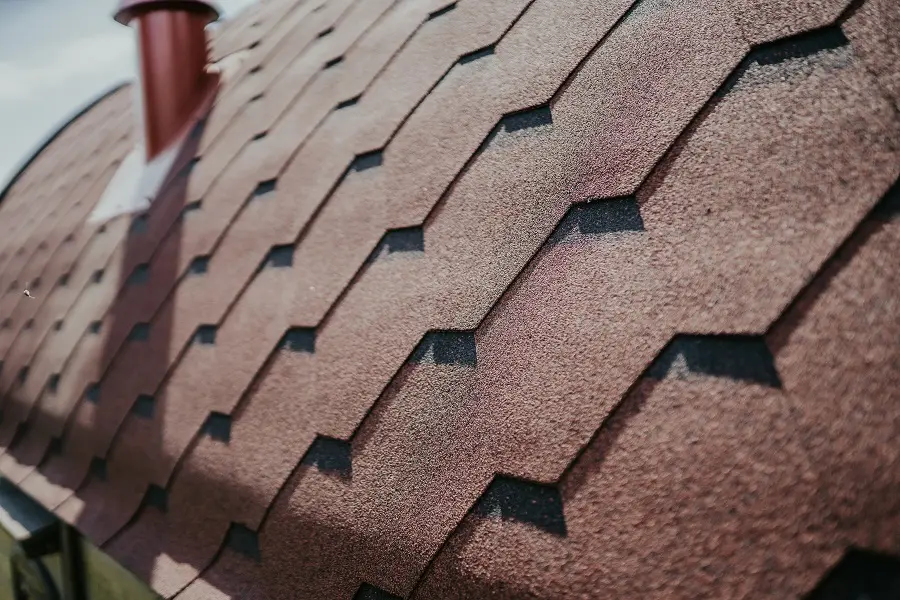
Illinois' challenging climate drives the demand for impact-resistant shingles and weather-resilient roofing systems designed to withstand extreme weather events. These materials provide enhanced protection while potentially reducing insurance premiums.
Class 4 Impact-Resistant Shingles
Impact-resistant shingles feature enhanced construction that helps them withstand hail damage and flying debris during storms. Many insurance companies offer discounts for homes with Class 4 impact-resistant roofing materials.
Features of impact-resistant roofing:
- Reinforced construction resists hail damage
- Enhanced granule adhesion prevents weather wear
- Improved tear strength for high-wind resistance
- Insurance discounts and premium reductions
- Extended warranties for enhanced peace of mind
Storm-Resistant Design Features
Modern roofing systems incorporate design features specifically engineered to handle Illinois' severe weather patterns, including reinforced attachment systems, enhanced drainage capabilities, and improved ventilation systems.
Commercial Roofing Innovations
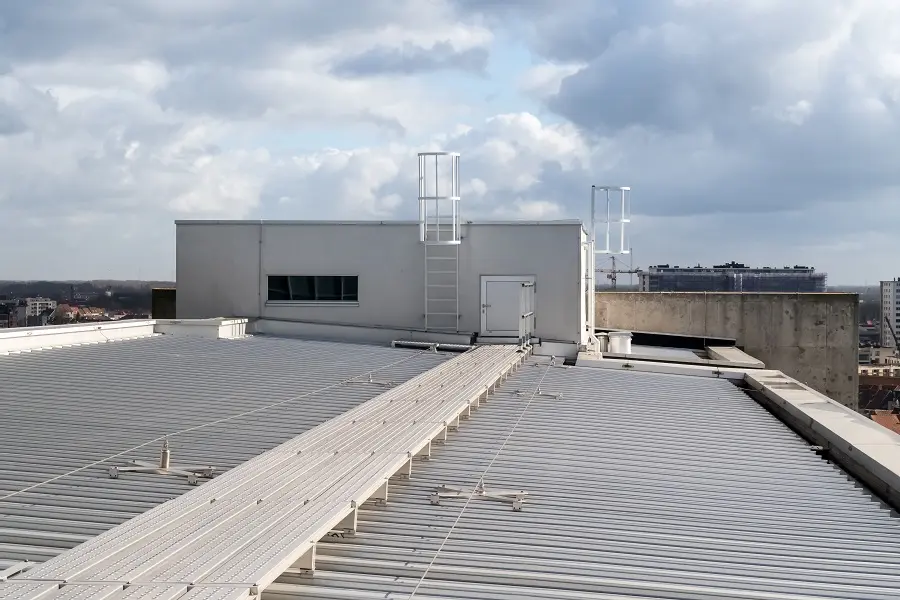
Commercial buildings require specialized roofing solutions that balance durability, energy efficiency, and cost-effectiveness. The commercial roofing sector is experiencing significant innovation in materials and installation techniques.
TPO and Modified Bitumen Systems
Single-ply membranes like TPO continue dominating commercial applications due to their energy efficiency, ease of installation, and excellent performance characteristics. These systems provide reliable protection for flat roofs common in commercial buildings, with proper flat roof maintenance ensuring long-term performance.
Green Roofing for Commercial Applications
Green roofs are gaining acceptance in commercial applications, providing insulation benefits, stormwater management, and outdoor spaces that enhance property value and employee satisfaction.
Technological Advancements in Installation
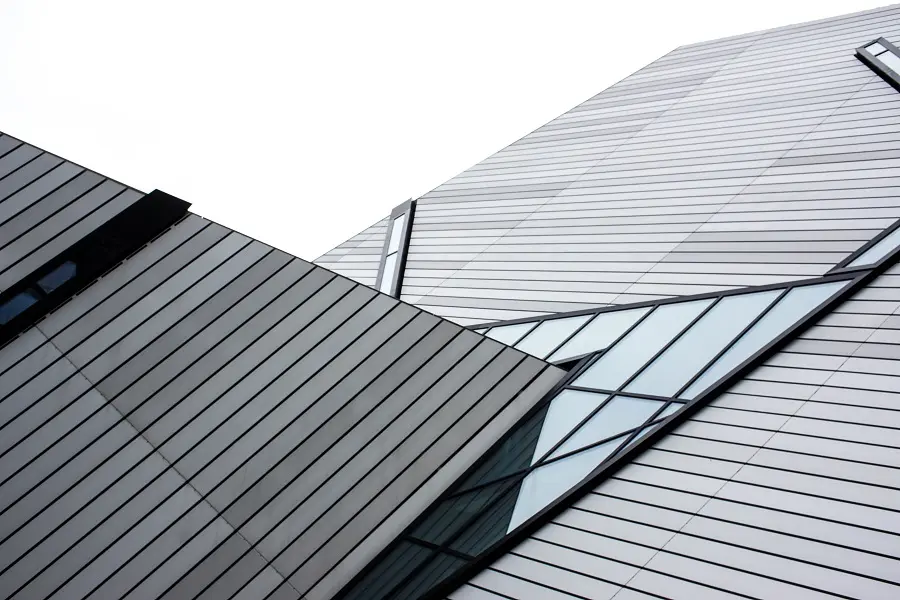
New roofing technology extends beyond materials to include installation innovations that improve efficiency, safety, and quality control. These advancements help roofing companies deliver better results while reducing labor costs and project timelines.
Drone Technology and Inspections
Drones revolutionize roof inspections and project planning, allowing contractors to assess damage, measure roofs, and monitor installation progress with unprecedented accuracy and safety.
Advanced Installation Tools
Modern roofing equipment includes pneumatic nailers, thermal imaging cameras, and precision measurement tools that enhance installation quality while reducing labor requirements.
Financing and Market Trends
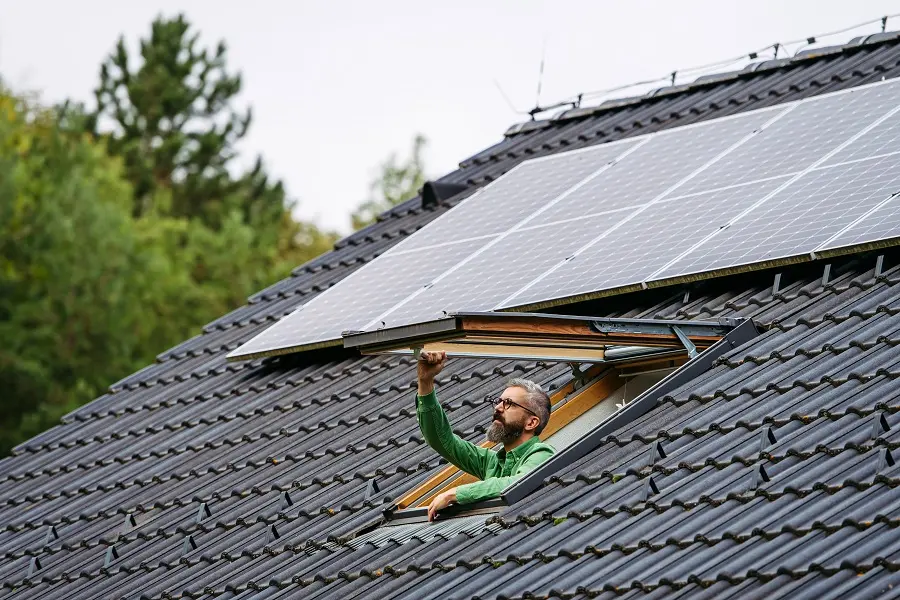
The roofing industry outlook for 2025 includes an increased focus on financing options and flexible payment solutions that make roofing projects more accessible to homeowners facing rising material and labor costs.
Flexible Financing Solutions
Roofing companies increasingly offer financing options that help homeowners manage the cost of roofing projects while investing in high-quality materials and professional installation.
Insurance and Warranty Evolution
Enhanced warranty programs and improved insurance coverage for advanced roofing materials help protect homeowner investments while encouraging adoption of innovative roofing technologies.
Choosing the Right Trend for Your Illinois Home
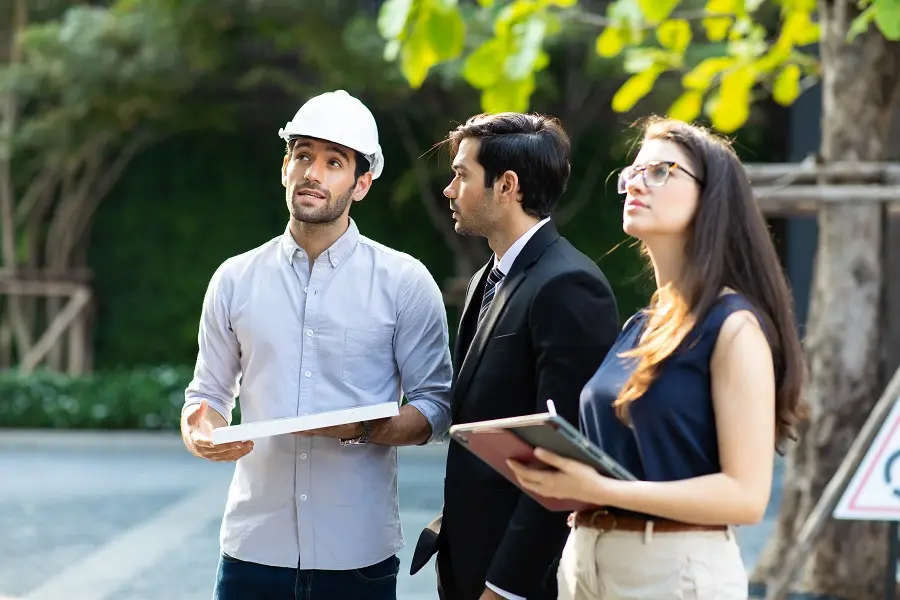
With numerous roofing trends gaining popularity, selecting the right approach for your specific situation requires careful consideration of your home's architecture, local climate, budget, and long-term goals.
Climate Considerations for Illinois
Illinois homeowners must prioritize roofing materials and systems that handle:
- Extreme temperature fluctuations
- Heavy snow loads and ice dams
- High winds and severe storms
- UV exposure during the summer months
- Moisture management throughout the year
Working with Professional Contractors
Successful implementation of modern roofing trends requires working with experienced roofing contractors who understand both traditional techniques and innovative technologies.
Future-Proofing Your Roofing Investment
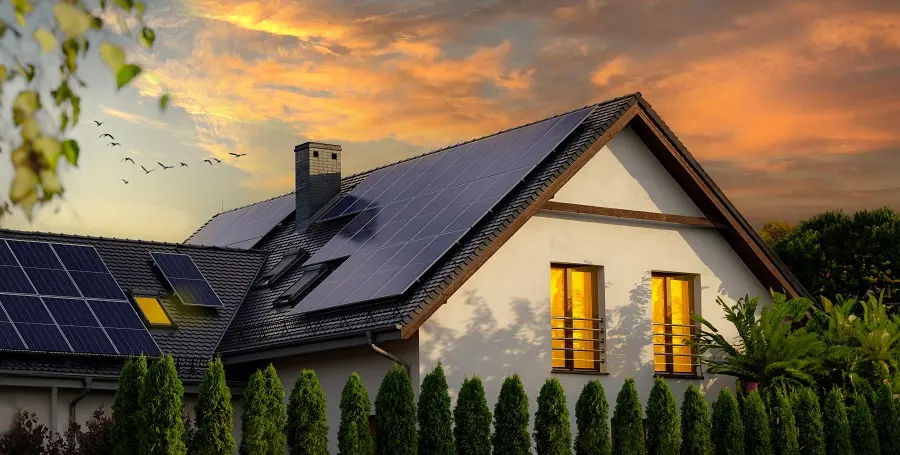
As roofing trends continue to evolve, making decisions that provide long-term value requires balancing current needs with future developments in materials and technology.
Long-Term Value Considerations
When evaluating roofing trends, consider:
- Material lifespan and warranty coverage
- Energy efficiency and utility savings
- Maintenance requirements and costs
- Insurance benefits and premium reductions
- Resale value and market appeal
Staying Ahead of Building Codes
New building codes increasingly emphasize energy efficiency and climate resilience, making forward-thinking roofing choices essential for long-term compliance and value.


.svg)
